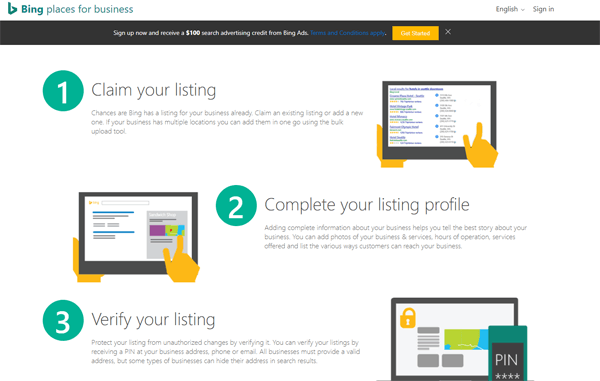Think Local: Tailor Your SEO for the Customers Who Need You Most

Harness the power of search engine optimization (SEO) strategy to boost local rankings, drive website traffic, and gain customers for life.
These are the promises of SEO-driven content, yet so many organizations neglect to consider the local element when it comes to effective SEO strategizing. Read on for useful strategies to ensure that SEO is current, relevant, and localized. High rankings are everything in today's fast-paced online marketplace, and our tips are guaranteed to help outrank the competition.
Enhance A Website's Code with Local Structured Data Markup
Structured data markup, otherwise known as "schema markup," provides search engines with a comprehensive level of information about your business offerings, including your products, associated reviews, available services, and more. Today, roughly a third of websites are harnessing structured data markup, and the majority of those sites are putting only a minimum of their data to work.
Some industries may be slow to catch on to local structured data markup, but individual organizations needn't dawdle. Keep in mind that Google and other search engines actually want organizations using structured data markup, since it makes crawling for results easier. To ensure optimal outcomes, make use of Google's innovative Structured Data Testing Tool to confirm that markup is functioning as it should.
Claim The Business-And Optimize From There
Don't overlook the power of large online directories, most notably Google My Business (GMB). We urge organizations to claim their Google My Business pages immediately, since this free opportunity offers terrific exposure-as long as information is optimized correctly. It's worth checking out Bing Places for Business, too. With a little tweaking, major search engines will be harvesting directory accounts in no time, supplementing search engine listings with maps, website links, and more.

To claim a business with Google, visit Google's Business page. Organizations are required to offer a physical address so that Google can mail a secure PIN. Though time-consuming, the process is worthwhile-otherwise, search engines would be inundated with false business locations and made-up owners. Remember: only the business owner can claim a GMB page, so even if an organization working with a third party to develop SEO content, only the owner has total access to his or her directory listing.
Once an owner has claimed the page, it's time to bolster it with relevant, comprehensive descriptions of your offerings, categories, and business hours. It's critical to include a local phone number, too. From there, organizations will want to incorporate everything from which types of payment are accepted to photos of the business, products, and services. Typically, three photos or more guarantee credibility in Google's eyes. Take the time to populate each section for a complete listing, simply hiding any categories that aren't relevant to the unique organization in question.
All Press is Good Press: Worship the Review
Consumers have known for decades that reviews can make or break a sale, providing pertinent information the manufacturer simply can't supply. According to BrightLocal's annual Local Consumer Review Survey, over 80 percent of consumers trust online reviews just as much as they would a personal recommendation. Plus, 70 percent report that they'll leave a review if the business requests one. Why not let the people have their say? Recognize quality reviews, respond to negative ones, and solicit new reviews at every opportunity. If done correctly, there's no better way to boost an organization's local credibility, online and off.
To get a handle on reviews related to any given brand, consider making use of websites like Vendasta, Trust Pilot, Get Five Stars, or Reputation Loop, all designed to track, manage, and solicit reviews. Hootsuite and Tiny Torch, social media platforms, alert users every time someone mentions their organization and related products or services. For customer reviews organizations can work with, we suggest turning to your business's Facebook account and Google My Business page. Remember: according to Google, "Positive reviews from your customers will improve your business's visibility," suggesting that reviews factor highly into page ranking algorithms.
Don't Ignore Titles and Meta Description Tags
Never neglect HTML elements, like titles and meta descriptors, which can help embed valuable keyword content to any online presence. These tiny pieces of text should be considered mini-advertisements, worthy of careful construction. Keep title tags tight and succinct, just under 50 or 60 characters, with description tags weighing in at around 170 characters. And remember-if tags aren't unique or distinctive, they won't do the brand any good. Tailor tags to suit a local clientele by including a location or general service area, too.
Never Underestimate the Online Directory
Some organizations may not yet be relying on websites like Yelp, Merchant Circle, Citysearch, Angie's List, and Craigslist, but we guarantee that their potential customers are. Take the time to list the business on respected local directories, and investigate the local newspaper's website, as well as the local Chamber of Commerce, for opportunities to list and promote services.
It also makes sense to list the brand properly on major citation data aggregators, including Factual, Acxiom, Infogroup, and Neustar. That way, businesses open themselves up for local and international attention alike. Just be sure to pinpoint and correct any errors now, before it's too late. Problems like misspelled words, confusing abbreviations, and incorrect phone numbers can sink a listing to the bottom of the rankings.
Keep it Local
When structuring SEO content, it's critical to tailor it to local audiences. After all, an in-town following represents the bread and butter for so many organizations - so why not harness the power of your community today? Embrace the potential of websites like Yelp - and never fail to acknowledge the power of your reviewers. When organizations devote time and attention to every element of the SEO process, they're positioning their brands to soar.
About the Author Seth Worby is the CEO and founder of Champ Internet in Newton, MA. Contact Seth at seth@champinternet.com.









